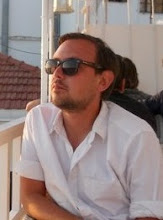From my review of Semper Fi: Always Faithful, at TOH:
Semper Fi: Always Faithful, Rachel Liebert and Tony Hardmon’s affecting if imperfect exposé of water contamination at U.S. Marine Corps Base Camp Lejeune, takes its title from what the Corps website calls “more than a motto — a way of life.” Some life. From 1957 to 1987, the USMC exposed nearly one million people to toxic cleaning agents in Camp Lejeune’s drinking water. Then the Corps tried to cover it up...
Juxtaposed with the canned statements of USMC representatives, these tales gather to them an undeniable power; such stories give average citizens a voice. “We are not numbers in a study,” says a woman whose newborn son died to a public hearing of the National Academy of Sciences. “We are human beings in a great tragedy.”
The human quotient overcomes the film’s flaws, because the personal histories, such as McCall’s, belie the central meaning of semper fidelis — that we’re all in this together. Her unnecessary death from cancer, in the middle of filming, shows just how cavalierly the Marine Corps neglected its supposed way of life, all while she, Ensminger, and countless others upheld their end of the bargain. Watching Semper Fi , I was reminded of another soldier and another Latin phrase, Dulce et decorum est pro patria mori . “It is sweet and right to die for one’s country.” The poet Wilfred Owen, writing during World War I, called it “the old lie,” and he was right. It is a lie, especially when your country is what kills you.
8.25.2011
Subscribe to:
Post Comments (Atom)


No comments:
Post a Comment